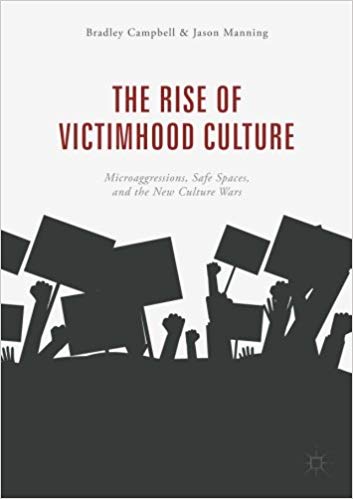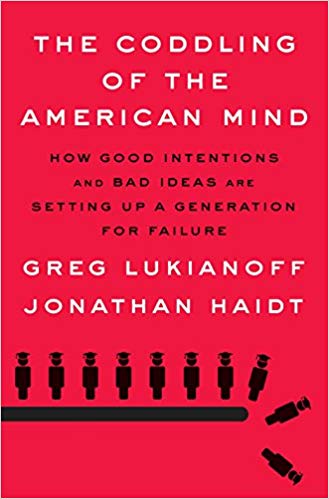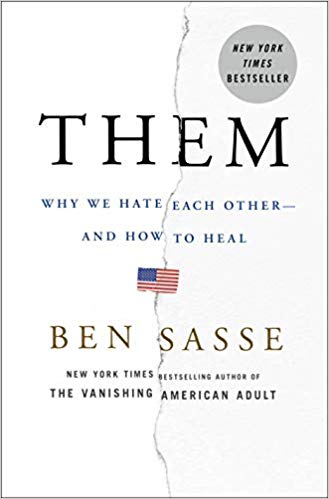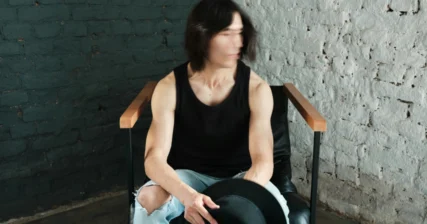Listen on: Apple Podcasts | Spotify
Abraham Lincoln shared the following words in 1838:
At what point then is the approach of danger to be expected? I answer, if it ever reach us, it must spring up amongst us. It cannot come from abroad. If destruction be our lot, we must ourselves be its author and finisher. As a nation of freemen, we must live through all time, or die by suicide.
Abraham Lincoln, Lyceum Address, 1838
If destruction be our lot, we must ourselves be its author and finisher.
Interestingly, the Civil War didn’t take place until 1861, the same year Lincoln became President. And even though his speech above foreshadowed the Civil War, the words are possibly more relevant today than they were back then.
As individuals and as a culture, you could argue that we’ve never been as weak or as fragile as we are today.

Feel Better Fast. Guaranteed.
Energy+, EDGE, and MentaBiotics make up the Happy Juice supplement stack, with ingredients clinically proven to:
- decrease anxiousness scores by 55%
- decrease irritability scores by 60%
- decrease fatigue by 64%
- decrease anger 54%
- decrease tension by 45%
- decrease confusion by 43%
- decrease overall distress by 49%
- increase good bacteria by 70%
- decrease negative mood by 105%
- increase positive mood by 211%
The Great Aweakening
How have we become so weak in body, mind, and culture? Why is there so much focus on what’s bad about life today when things are actually pretty good?
There’s an anonymous saying that goes like this:
Bad times make strong men. Strong men make good times. Good times make weak men. Weak men make bad times.
You might scoff at the idea that things are good, but they actually are. In almost every measure of humanity, from the percentage of the population that’s poor, to the rates of crime and disease, life is better today than at any other time in history.
You might feel conflicted about this idea that “things are good.”
Perhaps, prior to reading this article, you were just scrolling through your Facebook newsfeed and read how depressed a friend felt about needing to go back to work after vacation, how someone else was struggling to make it through her first day on a diet, and how a co-worker felt slighted for the barista misspelling his name again.
We’re surrounded by first-world problems that, in the grand scheme, are quite unimportant. But we stress out and lose sleep over them, nonetheless.
If it’s hard for you believe that life for most people is “pretty good,” it’s probably related to your negativity instinct, a skewed perspective of reality. In his book Factfulness, Hans Rosling explains the negativity instinct as “our instinct to notice the bad more than the good.” It is based on “the misremembering of the past; selective reporting by journalists and activists (and bloggers and social media personalities, in my opinion); and the feeling that as long as things are bad, it’s heartless to say they are getting better.”
When things are generally good, our minds keep searching for problems to solve. If we don’t find problems to solve, we have a way of making them up. If you’re hung up on the fact that the quote above references strong men, you’re proving that point. The quote was written when “men” was synonymous with “mankind,” men and women. Sometimes we make a big deal out of something because the drama gives us an emotional jolt and a reason to complain.
We make the good times bad because we lose perspective of what the bad times are really like…famine, war, poverty, etc.
The tone and attitude of a growing percentage of adults is frightening, as it showcases a culture of weakness and victimhood, rather than strength and responsibility.
In this article, I cover four ways we’re weakening our bodies, minds, and culture as a whole. I hope to create more awareness of the problem, so you start to see it in social media posts, on the news, and in everyday language.
Perhaps, you’ll realize some of your thinking and action even contributes to the victimhood culture becoming so prominent today.
I also hope that you, the person reading this, take responsibility as a grownup and citizen, and lead by example in your thoughts, words, and actions.
When you focus on victimhood, misfortune, and unfairness, you’ll find it. When you focus on what’s good, and do what it takes to build mental and physical strength, you see opportunity and find joy.
I hope to simply open your eyes and make you aware of what’s happening. Then, do two things:
- Make your physical strength a priority over the next 12 months. Developing physical strength has a direct effect on your mental and emotional strength. I see this as an easier step to start building strength and resilience. You don’t have to change your beliefs. You simply have to show up and do the work. But that work will make you mentally and emotionally stronger, so you can deal with the rest. Shameless plug: If you need an effective strength training program to follow, join VIGOR Training.
- Read more about the issues I describe. I’ve highlighted three books to start with, which I reference in this article.
As you’ll see, most of these factors that makes us weaker have a social media or digital lifestyle component. Smartphones and the internet aren’t bad, anymore than birthday cake, booze, sex or marijuana are. It’s the misuse or abuse of them that causes problems.
As victimhood culture becomes more prominent, it becomes more important to use these digital tools in a way that strengthens your life, not in a way that weakens it.
What Does It Mean To Be “Strong?”
Human strength and perseverance have been topics of poems, proverbs, stories of heroes, and songs since the beginning of time.
What comes to mind when you think of the word “strong?”
Some people think of physical strength, like Arnold Schwarzenneger in his prime. Others think of a strong mind, like Theodore Roosevelt or Mahatma Ghandi. Still others think of a strong spirit like Jesus Christ.
I asked this question in the VIGOR Training Facebook group. These are some of the responses:
- Standing for your principles no matter what culture says. – Jason Boyd
- Being able to hold the center – no matter the circumstance. – Karen Poel
- Being a “rock” for your wife, kids, church, work, friends. – Dave Beattie
- Overcoming difficulty, sickness, and obstacles with peace, love, and a sense of humor. – Beth Lindberg
- Godly, compassionate, holding your principles no matter the circumstance. – James Ferguson
- Strong is being steadfast and persevering. Not being wilted and brought down by life’s challenges. – Linda Jackson
- Physically and mentally tough, exercises grace but is a protector. – Ryan Gentry
- Weathering storms and leading through the toughest of circumstances. – Verick Burchfield
- Strong as a rock and flexible as water. – Scott Rowland
After looking through various dictionaries I came up with a few other phrases that describe strength:
- Not mild or weak
- Moral or intellectual power
- Not easily upset
- Able to withstand force, pressure, or wear
- Difficult to resist or defeat
- Firmly held or established
- Power to move heavy weight or perform other physically demanding tasks
A strong person can hold firmly to their values while entertaining the point of view of someone else, and so develop empathy. The alternative is to try to silence someone else’s opinion in order to make their own heard. That isn’t strength, it’s coersion and stubbornness.
In fact, a mentally strong person can even accept he or she could be wrong, and so is willing to listen to someone else enough to understand them, and if they realize they’re wrong, be able to admit it without feeling like their ego’s been crushed.
A bull, who runs everyone over in order to get what they want is not strong. A group that silences or shuts down the voices of another group, simply because they disagree, is not strong. Someone who slanders someone else, simply because they don’t like what they think, is not strong.
Strong is a combination of confidence and humility, physical ability and grace, critical thinking and empathy, and the ability to take hits and handle stress without being knocked on your butt.
If you reflect on those definitions for a few minutes, you’ll see how developing physical and mental strength is important to add value as an individual, as a partner in a relationship, an employee or business owner, and as a citizen of a culture and country.
4 Ways We’re Weakening Our Bodies, Minds, and Culture
Unfortunately, for many, their thoughts and actions rob them of that strength. The following are four of those ways we weaken ourselves, and play into the culture of victimhood.
1. Competitive Vulnerability
I looked up from my computer where I’d been browsing through my Facebook feed and said to Vanessa, “WTF?” (although I didn’t use the abbreviation), “Why do so many people feel the need to share so many everyday adult challenges as these major dramas on social media posts and stories?”
Being more savvy in social media than I am, she quickly responded, “Because it gets likes and comments, and attracts new followers.”
I replied, “Ugh, if I see another post start off with, ‘I’m going to be vulnerable…’ I might have to stop using social media. It’s like people are practicing Competitive Vulnerability to game their social media numbers.”
Competitive Vulnerability…though I blurted that phrase out without thinking, it’s stuck with me for a while now.
I define Competitive Vulnerability as this: The intentional and consistent embellishment of one’s challenges, struggles, and “adult messes” with the goal of attracting likes, comments, followers, and other social media “rewards.”
When my friend Scott Schuler read a draft of this article, he said, “It’s like fake vulnerability or fake humility. It’s bad leadership.”
Though someone may attract attention by dramatizing everyday life of an adult, they’re not really influencing anyone to move forward. In fact, they’re actually showing people it’s okay to stay stuck in their “struggle.” #adulting.
Competitive Vulnerability is a distorted interpretation of Brené Brown’s teaching on vulnerability, where one opens up about the challenges and struggles they face, and the lessons they’ve learned, so they can help other people through similar struggles.
Solving the problem isn’t the goal with Competitive Vulnerability. Sharing the story for the sake of a social media following is. The goal is to score the most likes, comments, and followers.
Carefully craft the story, snap a photo, hit “Post,” and then keep refreshing the screen to see how many likes and comments you get.
Though this is disingenuous to the followers who engage with the posts, the effect on the individual who posts is much worse.
In essence, you get rewarded for sharing setbacks and struggles, not necessarily for seeing yourself out of them.
The more you share your stories of being stuck in struggle and setbacks, the more you’re rewarded for your situation by getting likes, hearts, and comments of sympathy, and the associated dopamine hit that goes along with it. However, the more often you share your story, the more you become the story you share. Why work out of your struggle when you’re rewarded for staying in it?
To make matters worse, as people give you likes, comments, and other social media credit, more of those people are shown your content, which increases your reward even more.
This is an unusual phenomenon, because you get social credit for exaggerating your struggles, and by continually exaggerating your struggles, they become a bigger part of your overall story.
You’ll continue to weaken your drive, ambition, and willingness to change if you put yourself in a position to get rewarded for doing the same thing everyday.
True vulnerability is good. It’s necessary in the confines of intimate relationships.
As Brené Brown explains:
Vulnerability is based on mutuality and requires boundaries and trust. It’s not oversharing, it’s not purging, it’s not indiscriminate disclosure, and it’s not celebrity-style social media information dumps. Vulnerability is about sharing our feelings and our experiences with people who have earned the right to hear them. Being vulnerable and open is mutual and an integral part of the trust-building process.
We can’t always have guarantees in place before we risk sharing; however, we don’t bare our souls the first time we meet someone. We don’t lead with “Hi, my name is Brené, and here’s my darkest struggle.” That’s not vulnerability. That may be desperation or woundedness or even attention-seeking, but it’s not vulnerability. Why? Because sharing appropriately, with boundaries, means sharing with people with whom we’ve developed relationships that can bear the weight of our story.
Brene Brown, Daring Greatly
As you can see, the “vulnerability” Brene Brown helped bring to light, as a way to enhance the quality of our relationships, is not the same as the superficial social media-exploiting version of competitive vulnerability that fills up Facebook newsfeeds.
Competitive Vulnerability weakens social media followers by helping them feel better about staying stuck in their own mess because they see their influencer bragging about being in his or hers. It weakens the influencer by motivating him or her to remain stuck in the same story.
Read also: Why We Need To Stop Bastardizing “Struggle”.
2. Echo Chambers & Anti-Tribes
Imagine you were born in Oymyakon, Russia, one of the most remote places on earth. You live with 500 other residents. It’s dark 21 hours a day and the average temperature is -58 degrees. Your diet is mainly reindeer, frozen fish, and ice cubes of horse blood with macaroni.
It’s a two-day drive to the nearest airport, and getting there by anything other than a car is virtually impossible. You don’t even know what indoor plumbing is, because the pipes necessary for plumbing would always be frozen.
To you, Oymyakon is “the world.” Suppose a traveler made his way into your village and showed you pictures of buildings in New York City, a beach in the Caribbean, a value meal at McDonald’s, or a row of urinals in a public bathroom. The images he’d describe would be so foreign to you, you might be tempted to hang the traveler to a tree for showing you some kind of witchcraft.
Your instinct would be to negate everything he’d do or say because his version of the world didn’t fit with yours. From your point of view, the whole world would be just like Oymyakon.
In a virtual way, that’s what the echo chambers of social media do to us. Since social media networks want us to stay engaged, they show us content from people who are most like us.
At first, that seemed like a good idea. Why would we want to see stuff we weren’t interested in? If you don’t like cats (I don’t), and do like Shih Tzus (I do), wouldn’t it make sense to show you Shih Tzus and not show you cats? The problem becomes when you only see Shih Tzus, and start to believe that being a “pet owner” is synonymous with being a “Shih Tzu owner.” And that’s the distorted reality that the echo chambers of social media create.
They’re just like living in Oymyakon your entire life. These echo chambers weaken you socially because you can no longer relate to people who think differently from you. They weaken you emotionally because it’s impossible for you to establish empathy with someone else. You just can’t fathom a different belief system.
It’s beyond “preaching to the choir.” You start to believe anyone who isn’t in the choir has a problem. You see them as different. Inferior. And because you no longer have empathy for them, you have no compassion for “them” as fellow human beings.
Historically, humans were part of groups based on their geography, or common interests. People gathered together at the VFW, Lion’s Club, or local bar. Or, they got together to play softball, bowl, or some other common membership activity.
As an example, my mom is a member of PEO, and my dad has always been an active golfer and involved with the city council. Such “memberships” have kept them engaged with others on a personal and local level.
Most of us don’t have that anymore. We don’t have in-person activities or clubs we’re a part of, so we don’t have the intimate relationships we did in the past. We opt for a less-personal, but easier to manage source of “club membership” – our online world. This is where most people find their “tribe” today.
No wonder it’s so easy for grown adults, who probably think of themselves as mature, wise, and reasonable people, to lambaste those who have an opposing opinion on social media.
It’s not just their confirmation bias that makes it so easy to hate another avatar online.
Eye contact with another human makes it harder to mistreat him or her. Hiding behind a computer screen makes it easier to dehumanize someone, and treat them in a way we’d never do in person. It’s also why people feel so comfortable gossiping about someone, but would never have the guts to say the same thing directly to the person they gossip about.
Which leads me into a very dark kind of echo chamber, the Anti-Tribe.
Qin Shi Huang was the founder of the Qin dynasty, and was the emperor of China from 259 BC to 210 BC. During his 49-year reign, he was famous for destroying any books or sources of knowledge that contradicted him, and for killing scholars he disagreed with.
Like those whose lives are lived online, Qin Shi Huang lacked empathy.
When people connect online over a shared dislike or even hatred toward another person, President, group, or company, they form an Anti-Tribe.
Ben Sasse explains,
As natural, healthy tribes—family, friends, workplace, and neighborhood—have crumbled, we’ve turned to anti-tribes: an us-versus-them politics and a rage-fueled media complex that exploits our divisions for clicks.
Our isolation has deprived us of healthy local tribes with whom we share values and goals and ways of life that uplift us, and so we fall into “anti-tribes,” defined by what we’re against rather than what we’re for.
Ben Sasse, Them: Why We Hate Each Other And How To Heal
Rather than the group connecting over shared interests for the sake of community and encouragement, anti-tribes bind together over shared bitterness against something else.
What happens when people bond together through anger or hatred toward another group? Those emotions start to consume them. This isn’t just a political thing, either.
Some vegans hate meat-eaters, some carnivores do their best to digitally destroy vegans. Conventional medicine proponents ridicule natural medicine groups, while some who are hellbent on avoiding all conventional medicine attack Big Pharma, conventional medicine, and emerging medical technology.
If you believe the majority of people agree with you, you’ll be quick to criticize and condemn those who don’t. You might not feel like killing others the way Qin Shi Huang did, but you’ll be more likely to cast digital daggers at them when given the opportunity.
One of the marks of a mentally strong adult is to carry on a conversation with someone who opposes your point of view, considering their side with careful thought, and maintaining your temper and composure.
Girl Bosses And Anti-Tribes
Even within communities of people who share common interests and goals, anti-tribes develop. I’ve seen this first-hand in our network marketing business.
Most of the members in our particular company are women, so I can’t say for sure this would happen with guys, but I suspect it would. Even though the members of the organization have a common interest and goal, such as building their business and helping others get healthier, anti-tribes still arise.
A small group of women disagree with one of the other women, and suddenly the one woman is the enemy while the other women form an anti-tribe to gossip, make assumptions about her leadership, and spread other hatred and disdain. Of course, none of this happens in person; just in social media groups and chat threads.
Some of those anti-tribes have formed with my wife as the target, as have many others against the wives of some of my guy friends. These catty cliques can get incredibly cruel, but it’s the atmosphere of the group that gets people to say things about others they’d never consider saying in person. And the worse things get, the more likely it is that rumors and assumptions become the truth to the members of the group.
Anti-tribes weaken your thinking by causing you to rely on the “hive mind.” Once you become part of a group, critical thinking and independent thinking go out the window. You take on the thoughts and beliefs of that group. You believe what other group members say about your common enemy, no matter how far-fetched it may be.
That kind of behavior wouldn’t happen in a world where we all saw one another eye-to-eye. But when you don’t have to look at someone else or another group of people, it’s much easier to point fingers and throw stones.
Read also: Uncivil Wars: Why We’re Better At Condemnation Than Conversation.
3. Microaggression
I was a fat kid. My nickname was CP. It stood for Chubby & Porky. And I had moobs when I was an early teenager.
While being treated for leukemia as a child, I was given prednisone. It gave me an insatiable appetite. At six years old, I could eat a dozen hard-boiled eggs for breakfast. After the cancer treatment, the prednisone stopped, but my appetite didn’t go away.
If I’d only loaded up on eggs, it probably would have been fine…you know, Keto and all. But I also liked all other foods too, especially Soft Batch Chocolate Chip and Double Stuff Oreos cookies. By third or forth grade, I was chubby and porky.
I chose not to tell my parents about being teased, wanting to deal with it on my own. Having had a child with cancer, my mom was (and is even to this day) pretty protective of me, and worries much more than necessary. I didn’t want my parents to “handle it.” I knew that I needed to.
I also believed in the wisdom my Gramm Ruby and my Mom taught me: “Sticks and stones may break my bones, but words will never hurt me.”
That wisdom has been lost in today’s victimhood culture.
I’m glad I was fat and that some of my classmates pointed it out, often publicly.
- I learned at an early age that some people would like me, some wouldn’t, some would try to say and do hurtful things, and it would be up to me alone to decide whether it bothered me or whether I’d let it go.
- It made me realize, accept, and do something about the fact that I was fat!
I’m not saying that was the best way to handle it. It’s the way I handled it. A better way probably would have been to talk through it with my parents, and then have my parents help me figure out how to deal with it on my own.
However, the worst way would have been for my parents to jump in and deal with it for me. When parents handle problems for their kids rather than helping their kids deal with their problems on their own, they don’t develop the skills and strength to deal with the challenges they’ll face for the rest of their lives. They’re more likely to become victims, which is evidenced by today’s growing victimhood culture.
Read also: 5 Beliefs That Build Suckituptitude.
Today’s victimhood culture even has a name for the teasing, name-calling, or slights that have been part of human relationships since the beginning of time: the microaggression.
A microaggression is “indirect, subtle, or unintentional discrimination against members of a marginalized group.”
Microaggression complaints arise from a culture of victimhood in which individuals and groups display a high sensitivity to slight, have a tendency to handle conflict through complaints to authorities and other third parties, and seek to cultivate an image of being victims who deserve assistance.
Bradley Campbell & Jason Manning: The Rise of Victimhood Culture
Microaggression today expands well beyond race and serious offenses. It’s basically become catch-all category of major or minor, intended and unintended offenses, as well as other interactions that might have nothing to do with offending “marginalized groups.”
In a way, a microagression is anything someone might do or say, that could make another person “feel bad.”
Victims of microaggression are taught to enlist the support of authority figures instead of dealing with it themselves. They might be parents while they’re still living at home, college professors and administrators in college, bosses at work, or even politicians and policy-makers.
In essence, microaggression is a way to find or imagine ever more subtle slights, and then condemn the person who may or may not have intentionally caused the slight.
It’s become more common for college campuses to attempt to police microaggressions, rather than expect students to deal with their differences on their own.
Not surprisingly, the University of California Berkely was among the first of colleges to put a policy statement together. As Campbell and Manning explain, based on the UC document:
It is a microaggression, according to the document, to say “Where are you from?” or “Where were you born” to an Asian American or Latino American, “Why are you so quiet?” to an Asian, Latino, or Native American, or “Why do you have to be so loud/ animated?” to an African American. Note that what is required of people is not that they treat minorities or women as they would anyone else. “Why are you so quiet” might be asked of any quiet person of whatever race or ethnicity, but asking it of an Asian, Latino, or Native American is a microaggression, according to the document, because it conveys “the notion that the values and communication styles of the dominant/ White culture are ideal/ ‘normal’”. Whether the person asking the question actually means this or is even aware of any such cultural differences between the “dominant/ White culture” and others seems to have no bearing on whether the question is a microaggression.
Bradley Campbell & Jason Manning, The Rise of Victimhood Culture
A 2016 Campus Reform article, referencing the University of North Carolina’s document, adds some additional microaggressions:
- Complimenting a woman on her shoes (apparently this could be taken as “I notice how you look and dress more than I value your intellectual contributions.”)
- Referring to “husband/boyfriend” of women or “wife/girlfriend” of men who are coworkers instead of partner/spouse
- Suggesting that the staff play golf at a retreat is also a microaggression since it “assumes employees have the financial resources/exposure to a fairly expensive and inaccessible sport.”
- “How did you get here?” constitutes a national origin microaggression because it acknowledges that some “immigrants get to this country illegally,” while asking “Where are you from?” implies that “you are not American and do not belong to this community.”
Can you see how college students would be walking on eggshells? Can you imagine how the average person would, if microaggression becomes part of everyday life as adults?
Since the topic of microaggression is such a focus at some of the country’s most prestigious colleges, it could just be a matter of time before this works its way into corporate culture and potentially even public policy.
In “protecting the feelings” of an individual, the microaggression only causes greater division among people in a community or culture. And, it weakens the individual who could learn to just let some small stuff go.
In fact, protecting people from emotional or psychological discomfort goes against much of the best practices in psychology for developing competent adults.
Just as you probably had that one person in high school who walked around, looking for people to break the rules so they could tattle to teachers, that same type of person shows his or her face in victimhood culture.
Julie Burchill dubbed this person the Crybully. The Crybully is the champion for the victimization of an individual or group of people. Burchill describes the crybully as “a hideous hybrid of victim and victor, weeper and walloper.”
The Crybully is always on the lookout for someone who says or does something that could be interpreted as offensive to someone, and attempts to punish the “offender,’ ideally publicly, even if the “offender” had no idea what they did in the first place.
When everyone has the potential to say something wrong, and crybullies are quick to call it out, it creates a culture of vindictive protectiveness.
Coined by Greg Lukianoff and Jonathan Haidt, vindictive protectiveness was originally an issue in schools. But, based on the definition, you can easily see how it’s playing out in the “real world” and on social media.
At some schools, a culture of defensive self-censorship seemed to be emerging, partly in response to students who were quick to “call out” or shame others for small things that they deemed to be insensitive—either to the student doing the calling out or to members of a group that the student was standing up for. We called this pattern vindictive protectiveness and argued that such behavior made it more difficult for all students to have open discussions in which they could practice the essential skills of critical thinking and civil disagreement.
Greg Lukianoff and Jonathan Haidt, The Coddling Of The American Mind
In essence, it shuts down the ability for people to discuss and debate differences of beliefs, and creates a culture where people feel entitled to listen in on the conversations of others, and call them out whenever they sense a microaggression taking place.
Case in point, my sister-in-law’s interaction with a Crybully while shopping for school supplies. Here’s what happened.
The Pencil Box Crybully
My sister-in-law met a crybully at an office supply store one day. She was shopping for school supplies and stopped at a display of pencil boxes. Her son asked if he could have a black pencil box. The box he was holding was broken, so she said, “No, that pencil box is broken.” Grabbing the pencil box next to it, he asked again, “Can I get this one?” “No,” she replied, without even looking at it, “I’m not buying you a pencil box.”
The pencil box happened to be pink, and a woman shopping with her son overheard only the last part of this interaction, seeing that Camille’s son wanted a pink pencil box. She walked over to Camille and berated her for shaming her son for asking for a pink pencil box.
She was clearly out of line, and made an assumption about Camille’s parenting and the conversation that took place, and felt entitled to step way over her boundary as a fellow mother, and tell her how she should parent.
Psychologists call this “mind reading,” assuming what someone else is thinking based on one’s own cognitive biases. It’s just one of the ways Crybullies intervene in situations they shouldn’t be a part of.
A strong person can deal with intended and unintended slights. They can even get over people who are bitches and assholes, because they’ll always be around us. They live in a world that’s different than yours. It’s you who gives their words and actions power to enter your world and affect who you are. It’s you who decides that “sticks and stone can break your bones and words can also hurt you.”
Unfortunately, many of today’s students, who will become the next generation of adults and parents, are learning to let words mean more than they should, and the “authorities” who intervene serve to keep them from gaining the strength they need to handle it and let it go.
In addition to the poor example this sets for future generations, it also gives less attention to the true victims of today’s culture. Victims of racism, abuse, human trafficking (yeah, there’s still a lot of slavery out there), and other heinous acts of humanity.
In the animated movie, The Incredibles, Buddy got his feelings hurt as a kid, and rather than getting over it, he became the villain Syndrome. Syndrome was intent on eliminating all of the superheroes (“Supers”), and selling his technology so everyone could be superhero. As he put it, “When everyone’s Super, no one will be.”
When everyone feels empowered to call others out because they’re victims of others being mean, then those who are truly victims won’t get the attention they need.
To paraphrase Syndrome, “When everyone’s a victim, no one will be.”
4. Stress Avoidance
Stress is rarely the problem it’s been portrayed to be over the past ten years. The issue is your perception of stress, and the poor lifestyle choices that keep you from recovering from the stress you face.
Unfortunately, we’re often told by well-intentioned health experts that “stress is bad.” I regret to admit that I even said that in the past.
As this idea has caught on, we’ve created a culture that does whatever it can to avoid feeling “stress.” Yet, stress is part of life. If we don’t have the skills to handle stress, and the lifestyle to recover from it, we’re doomed to become sick, weak, and worthless.
Rather than confronting the cause of stress, we’re encouraged to avoid it.
Don’t like what your friend believes anymore? Unfriend them.
Don’t like your boss? You can just quit and find a new job, or move back in with your parents and mooch off them.
Tired of how your spouse treats you? Cut ties rather than go to counseling.
Is a workout so hard it’s making you sweat? Just change the channel and do something easier.
You’re supposed to do whatever makes you happy, right? I can literally feel myself starting to vomit as I think of that stupid piece of self-help advice.
You are not entitled to happiness, only the pursuit of happiness.
Dealing with stress is painful. Yet, that’s how you gain strength and wisdom.
The Greek’s have summarized it with these two words:
pathemata mathemata: guide your learning through pain
Many parents go out of their way to avoid having their kids feel stress.
They give them participation ribbons so they don’t feel the stress of losing, but then they don’t develop the skills of sportsmanship or the strength to win.
They intervene when their kids struggle with classmates and teachers, and then the kids never learn to deal with difficult people. Instead, they grow up hiding behind the safety of a computer for interacting with others.
If they feel bad because friends have cars and toys they don’t have, many parents buy the stuff for them instead of having the kids earn the stuff through jobs or chores.
If a child were never allowed to get out of bed until the age of 18, he’d be physically incapable to move and work. Keeping a child from experiencing disappointment, failure, frustration, and pain does the same thing emotionally.
Some of the best life lessons come through breaking up with a girlfriend or boyfriend, losing in sport or competition, getting physically bumped, bruised, or hurt, or working at a job for a boss you don’t like.
I believe parents should help talk through the hard stuff with their kids, but keep their kids in the driver seat to deal with them, whether that means confronting others or learning to let go.
Without going through those circumstances, kids are more likely to grow up to become weak-minded adults. They might crumble when their boss doesn’t like their work, a first date isn’t interested in a second one, or when a friend betrays his or her trust.
Often, when it comes to this topic of handling “adult stuff,” we focus on kids and young adults. However, the parents who teach their kids to avoid stress also teach themselves.
After all, you can’t teach something to someone else, without learning it and believing in it yourself. So, not only are many of today’s young adults ill-equipped to handle the stress of adulthood, the parents who coddled them have weakened themselves as well.
It’s virtually impossible to contribute to the world without facing some discomfort and pain.
I’m grateful for the physical and emotional discomfort I dealt with when I was young. Through the bone marrows and spinal taps I experienced throughout my adolescent and early teen years, I learned to handle much greater physical pain. Through dealing with being teased as a fat kid, I learned to handle ridicule of others and let it go. By working since I was 14 years old, I learned to put forth whatever physical effort was necessary to get the job done at work.
Your capacity for stress, discomfort, and pain is directly related to the stress, discomfort, and pain you’ve dealt with in the past.
Some of the most painful experiences in one’s life can pave the way for strength and resilience. Don’t hide from it. Don’t keep your kids from it.
Stress is part of life. It’s a necessary part of life. Perhaps, rather than talking about how stressful it is, or thinking about how you can hide from stress, you’d be better served to run toward it, address it, and build strength to handle even greater stress in the future.
Read also: 5 Life-Changing Questions To Ask Yourself Everyday.
Build Strength Or Succumb To Weakness
The four ways we weaken ourselves and our country above are hardly a complete list. They only scratch the surface of the distorted thinking involved in the victimhood mindset. However, at over 6000 words, this article’s gotten long enough.
I’ll address more of the issues involved in victimhood culture in future articles, as they run counter to the goal of building and maintaining a strong nation, or even building and maintaining strength as an individual. And since the main goal of my site is to help people build physical and mental strength and resilience, understanding the factors that weaken us is part of the process.
I’ll wrap it up with this…
No one is entitled to happiness, only the pursuit of it. And in the pursuit of happiness, success, fulfillment, and a meaningful life, you must face discouragement, learn to work with people you don’t agree with, and let stuff go.
You are not entitled to a pain-free life, and I shudder at the idea of creating policies and policing people so much that they have a hard time knowing what to say.
They will lose themselves and their individuality because they’re afraid of offending someone. We cannot have free speech by limiting the speech of people. We cannot grow and develop while feeling afraid to do, say, and think what we believe. And we cannot work together, if we feel the right to shut down the thoughts and beliefs of others who don’t like us or agree with us.
I’m glad I learned those lessons before I entered high school, and hope today’s youth will learn it before entering adulthood, and most importantly, before becoming parents and leaders themselves.

Feel Better Fast. Guaranteed.
Energy+, EDGE, and MentaBiotics make up the Happy Juice supplement stack, with ingredients clinically proven to:
- decrease anxiousness scores by 55%
- decrease irritability scores by 60%
- decrease fatigue by 64%
- decrease anger 54%
- decrease tension by 45%
- decrease confusion by 43%
- decrease overall distress by 49%
- increase good bacteria by 70%
- decrease negative mood by 105%
- increase positive mood by 211%






